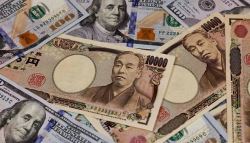 [이데일리 마이클브린 칼럼니스트] 외국인들이 한국에 빠져드는 데는 이유가 있다. 한국이 마치 성품 고운 여성처럼 외국인들로 하여금 원하는 바를 충분히 말할 수 있도록 해주기 때문이다.
[이데일리 마이클브린 칼럼니스트] 외국인들이 한국에 빠져드는 데는 이유가 있다. 한국이 마치 성품 고운 여성처럼 외국인들로 하여금 원하는 바를 충분히 말할 수 있도록 해주기 때문이다. 여성들에겐 신경을 거스르는 이야기 일 수 있겠지만 기분 좋은 사실도 내포돼있다. 남자들은 자신의 이야기를 잘 들어주는 사람을 좋아하긴 하지만 막상 상대방이 자신의 이야기를 집중해서 듣는지, 그 이야기에 대한 어떤 평가를 할 것인지 확인할 정도로 똑똑하진 못하다. 사실 한국 역시 외국인들의 이야기를 대부분 무시한다.
하지만 난 적어도 관광분야에 있어선 한국은 외부인의 충고를 진지하게 받아들여야 한다고 생각한다.
아름다운 곡선을 자랑하는 해안선과 관능적인 산을 갖고 있음에도 한국은 외국의 여행객들을 끌어 모으지 못하는 것 같다. 한국을 찾는 외국인들에게 여행이나 관광은 대부분 부차적인 목적이다. 순수하게 휴양만을 목적으로 찾는 이들은 찾아보기 힘들다.
심지어 자국민에게 조차 외면당하는 현실은 영국과 다르지 않다. 한국인들은 대부분 발리나 뉴질랜드 같은 해외로 신혼여행을 가지 제주도로 가는 이들은 거의 없다. 연휴에는 괌이나 사이판에 여행객이 몰리는 반면 전라남도는 한산하다. 대부분의 주한 외국인들도 아시아 다른 나라에서 휴식을 취하곤 한다.
그 이유 중 하나는 한국이 부유하긴 해도 다소 거친 느낌이 들기 때문이다. 물론 삼청동이나 가회동은 예외지만 대부분 미적으로 떨어진다. 어느 장소로 이동하는 것도 불편한데다 막상 도착해서 실망할 때도 적지 않다. 설악산의 기념품 가게에서 판매하는 장신구류나 경주의 기념품이나 다를 게 없다.
한국인들은 매력적인 사람들이다. 아일랜드 사람들처럼 친절하고 감성적이며 영적인데다 상당한 이야기꾼이다. 하지만 건축물들을 놓고 볼 때 폴란드나 이스라엘처럼 단조롭다.
이는 훌륭한 디자이너가 없기 때문이 아니다. 아마도 돈과 지위가 아름다움보다 더 높은 가치로 간주되기 때문일 것이다. 아파트의 가치가 순전히 10억원이라는 매매가에만 있다면 외관이 어떻든 누가 상관하겠는가. 이 같은 전통은 비전문가들이 자신의 권위를 내세우기 위해 전문가들의 의견을 묵살하는 데서부터 비롯되었다 할 수 있다.
물론 한국전역이 아름다워야 할 필요는 없다. 관광객들은 스키를 타거나, 해안의 리조트에 머무는 등 한 두 군데의 명소만 들르는 경우가 대부분이다. 다른 것은 별로 신경 쓰지 않는다.
하지만 휴양시설 역시 그다지 매력적이지 못하다. 한국인들이 좋아하는 클럽메드 같은 시설은 왜 한국에는 존재하지 않을까. (제발 재벌이 클럽메드와 제휴를 맺지 못해서라고 말하지 말아달라.)
왜 관광 관련자들은 아시아에 한류 마케팅을 적극 펼치면서도 서구의 여행객들에겐 조선의 이미지만을 내놓는 걸까. (정부에의 메모 : 나 개인적으론 조선에 큰 관심이 없다.) 난 샤머니즘에 호기심과 궁금증이 발동하는데 관계자들은 이를 숨기려고만 한다. 심지어 국사단은 지도에조차 나오지 않는다. (뭐? 국사단? 맞다. 매우 생소한 곳일 것이다.)
일반적으로 한국관광의 문제는 간단하게 정리된다. 한국은 소비자들이 원하는 것을 잘 알아 채지 못하고 적절하게 반응하지를 못한다. 하지만 이걸 아는가? 이에 능숙한 사람은 많지 않다. 타인의 충고는 이래서 필요한 거다.
현대의 자본주의 시스템은 컨설팅 그 자체이다. 성공하려면 많은 사람들의 능력을 조합해야 한다. 콧대가 너무 높거나 혹은 둔해서 조언을 받아들이지 못한다면 성공은 물 건너간다.
수퍼맨의 능력에 의존하는 권위주의적 구조는 이제 실패의 정석이라고 밖에는 말할 수 없다.
나는 답을 모른다. 하지만 나는 내가 모른다는 사실만큼은 잘 알고 있다. 이 같은 경우엔 한국이 조언을 받아들이고 행동하라고 말해주고 싶다.
마이클 브린(인사이트 커뮤니케이션즈 컨설턴츠 대표이사)
<영어원문>
On tourism in Korea
One reason foreigners grow to love Korea so much is that, like a nice woman, she is a country that lets you tell her what to do.
Now, that comment may be annoying for women, but here is the comfortable truth - men like being listened to, but we are too stupid to follow up and check whether you are actually taking our advice. Actually, Korea ignores most of what foreigners say.
But one area where I think Korea needs to take serious consulting from outsiders is tourism.
Despite its curvaceous coastline and voluptuous mountains, Korea doesn’t seem to be able to attract people to visit purely for holiday-making. There’s always another reason foreigners are here and a touch of tourism is a kind of side-dish to whatever that reason may be.
Truth be told, like Britain, Korea is not even very good at attracting her own citizens. Koreans are honeymooning now in Bali and New Zealand rather than in Jeju. They’re taking their long weekends in Guam and Saipan rather than in Cholla Namdo. Expatriates here similarly take their short breaks elsewhere in Asia.
One obvious reason is that, despite its wealth, Korea is a little rough. There are some exceptions, like Samchong-dong and Gahoe-dong in Seoul, but most places lack beauty. It’s often an annoying struggle to get to places and, frankly, once there, it’s not always worth it. The trinkets in the souvenir shop in Sorak aren’t much different from what you’d find in Gyeongju.
The Korean people are very attractive in their character. They are like the Irish, hospitable, sentimental, spiritual, great talkers. But architecturally, this country is as drab as Poland and Israel. This is not because there are no good designers. I think it comes from the fact that money and status count for more in this culture than beauty. When an apartment is important because it is worth 1bn Won, who cares if it looks nice or not? A feature of this tradition is of inexpert decision-makers who micro-manage and overrule experts, such as designers, as a way of expressing their authority.
Of course, Korea doesn’t need to be beautiful everywhere because tourists tend to go to one or two places &8211; like ski or beach resorts &8211; and not care too much about anything else. But even holiday facilities here are not very attractive. Why are there no resorts like Club Med, which Koreans flock to overseas? (Don’t tell me - because a chaebol didn’t get the right from Club Med to develop the brand?)
Why have tourism authorities decided to market the Korean Wave to Asian visitors but the Yi Dynasty to western visitors? (Memo to the government: I don’t care about the Yi Dynasty). I do have a curious fascination with shamanism, but you hide that and don’t even put Kuksadan on the map. (Where? Exactly. No-one has heard of it.)
In general, the questions about Korean tourism come down to a simple formula: Korea is not very good at figuring what consumers want and responding. But, guess what? Not many people are good at this. That’s why they take advice. The entire modern capitalist system is about consulting. To succeed you need to combine the abilities of many people. If you’re too arrogant or too ignorant to take advice, you will not succeed
The old authoritarian structure relies on the abilities of one superman is now a formula for failure.
So, I don’t know the answers. But I know enough to know what I don’t know. And I would recommend that on this occasion Korea take advice and act on it.
By Michael Breen(The president of Insight Communications Consultants)




!['7억8000만원' 로또 1등 남편 살해한 여성이 한 말 [그해 오늘]](https://image.edaily.co.kr/images/vision/files/NP/S/2024/12/PS24122400001t.jpg)